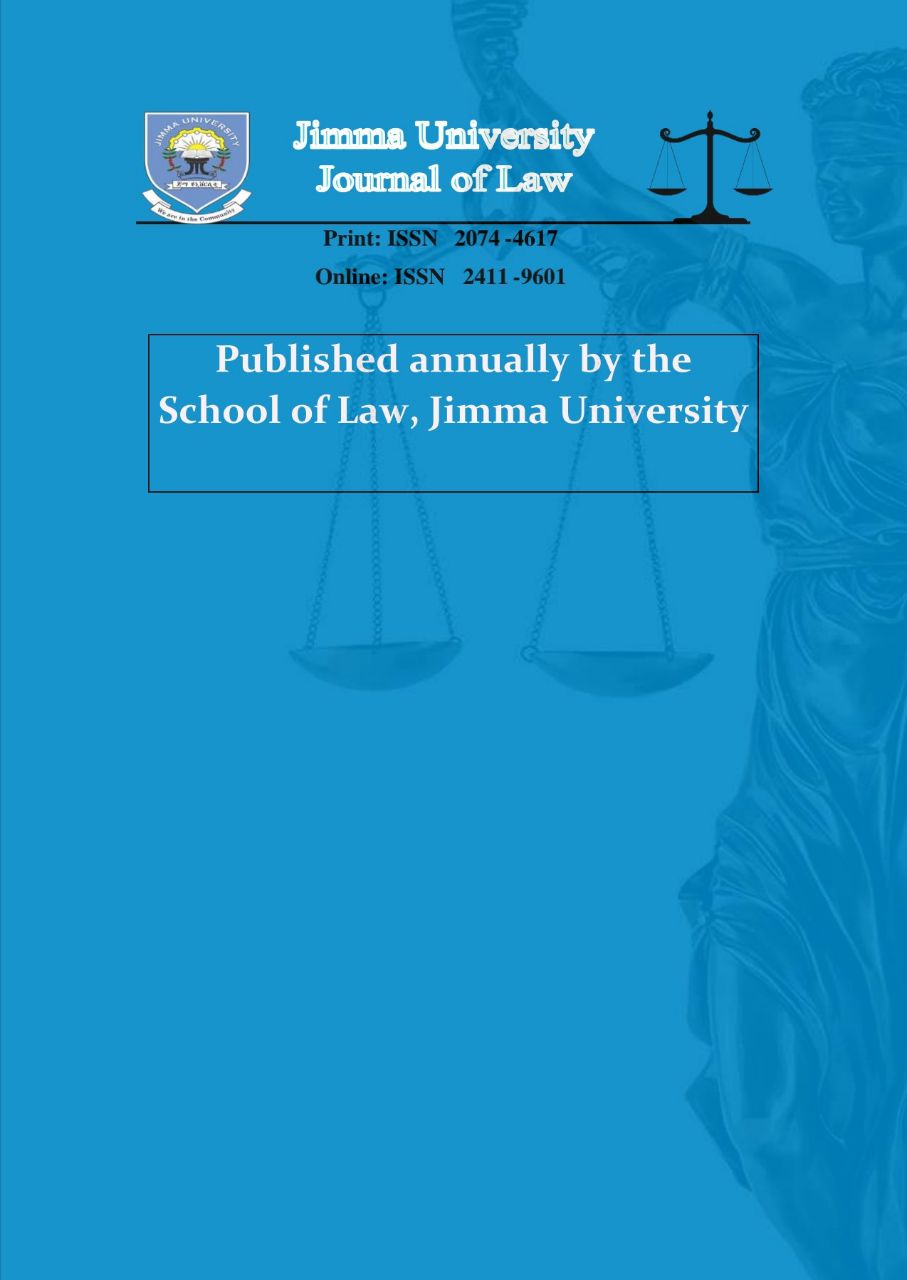Status of Subnational Constitutionalism in the Federal Democratic Republic of Ethiopia: Implications of Theoretical Evaluation of Some Facts
Abstract
By adopting federalism, the Federal Democratic Republic of Ethiopia (FDRE)
has domesticated the prominent prerequisite for subnational constitutionalism,
i.e. the establishment of subnational units (SNUs), called Regions, with
designated powers. The SNUs have competence over regional/subnational (SN)
matters and governance. They can also write SN constitutions by which they
administer themselves. This paper argues that the establishment of SNUs and
the existence of SNCs do not evince a robust SN constitutionalism (SNCM) in
the country. However, based on some theoretical normative evaluation of how
much the constitutional system and process at SN level fare with the ideals of
SN constitutionalism, it can be witnessed that there are practices that go hand in
hand with SN constitutionalism on the one hand and that are inconsistent with
SN constitutionalism on the other. It, finally, concludes that strengthening the
promising steps, and a systematic approach and commitment to tackle the
pitfalls enhance SN constitutionalism in the SNUs.




